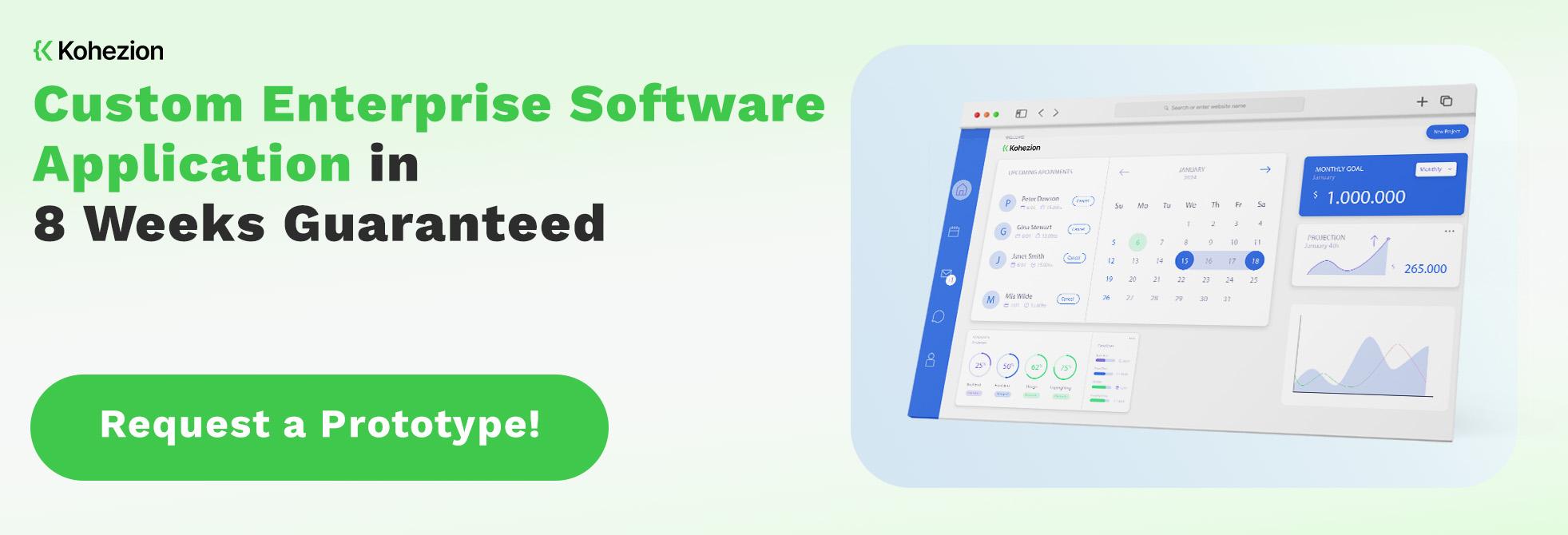Managing a portfolio of properties can be a complex and time-consuming process. With so much data to track, from rent payments to maintenance requests, it can be challenging to stay organized and on top of everything. That's where a property management database can come in handy.
A property management database is a powerful tool that allows property managers to track and manage all aspects of their properties in one centralized location. By using a property management database, property managers can streamline their workflows, improve communication with tenants and staff, and gain valuable insights into their properties and portfolios.
In this post, we'll explore some of the key benefits of using a property management database and how it can help property managers to work more efficiently and effectively.
Why Do You Need a Property Management Database?
Property management databases are one of the most valuable tools in a landlord's arsenal. In addition to providing an impressive range of benefits, today's software solutions are user-friendly and easy for busy realtors to use on the go.
There are often piles of paper files that come with managing your standard property. You can avoid this by building a custom property management database. Migrating your files and data to the cloud makes it accessible from anywhere in the world. You can update your accounts and automate time-consuming tasks, putting time back on your side.
Besides the well-established property managers, these management databases are also used by:
- Small property managers: A growing percentage of property management database users are individuals who oversee a handful of units.
- New landlords: New property managers often turn to databases to start on the right foot by best managing their properties.
- Out-of-state property owners: Today's database solutions have a design that allows out-of-state landlords to manage their properties quickly and on the go.
The Benefits of Property Management Database
Thanks to the availability of property management databases, managing multiple properties isn't an impossible task. As we've already mentioned, software platforms offer users several advantages. They include better security, mobility, and ease of use. Let's take a look at some of these benefits in more detail.
1. Quick rent collection
If you are not already using online rent payment, you are missing out on saved time, money, and prospective new tenants. The easier you make it for your clients to pay the rent, the less time you'll spend chasing down late payments. Allow them to log payments in the application, record expenses, and note who and when they're paying.
The bottom line is that software can help you:
- Easily schedule recurring monthly payments
- Automate payment reminders to reduce the number of late payments
- See payment activity in real-time
- Allow tenants to choose from a variety of rent payment options
Many property management databases like Kohezion also include rent-tracking capabilities and transaction management. That way, you instantly know who is paid up and who has fallen behind. Some solutions come with automatic late-fee calculators, as well.
2. Prompt communication with tenants
As tenants send you requests, they can pile up quickly and get buried unless you organize and track them properly. Even if you don't manage many units simultaneously, a sudden influx of requests can pose a problem for a busy property manager.
Rental property management databases help landlords streamline any requests and organize work orders and contacts. This can reduce the amount of time you spend searching for emails or phone numbers. You can even group tenants and other business partners into "User Groups" for a more streamlined contact management workflow.
3. Efficient data management
Automating tasks and reminders can prevent you from getting lost in the data. For example, you can set a future reminder for property inspection at the beginning of the lease.
Produce your professional reports showing expenses, profit, rent collections, etc. It will save you hours when you would otherwise have to enter data manually. This leaves no place for human error.
You can also incorporate fillable PDFs to enhance your property management database and streamline document management.
4. Simple backup and recovery
With an online database, all of the information you enter is automatically stored in the cloud. It means you have access anywhere globally and that your data is backed up and safe if you ever need it in the future.
5. Scalability
Property management software saves a whole load of time and makes managing your properties more straightforward. However, this also means you have more time to do other things, like investing and managing more properties. In doing so, you can increase your revenue and profit.
An upside is that a scalable solution won't require more staff or overhead to accomplish more for your business every day. As you grow, you want to focus on your business, not your technology, so you should consider moving to a database solution as soon as possible.
Conclusion
A property management database can be an invaluable tool for property managers looking to streamline their operations and improve their bottom line. By using a database to centralize and organize their data, property managers can save time, reduce errors, and gain insights into their properties that would be impossible to achieve with spreadsheets or other manual methods. A property management database also becomes more efficient when complemented with technologies like geospatial asset management systems.
Whether you're managing a single property or a large portfolio, a property management database can help you stay on top of your tasks, improve your tenant relationships, and ultimately, grow your business. If you haven't yet explored the benefits of using a property management database, now may be the perfect time to do so.
Want to build a custom property management database? Start your FREE TRIAL TODAY

